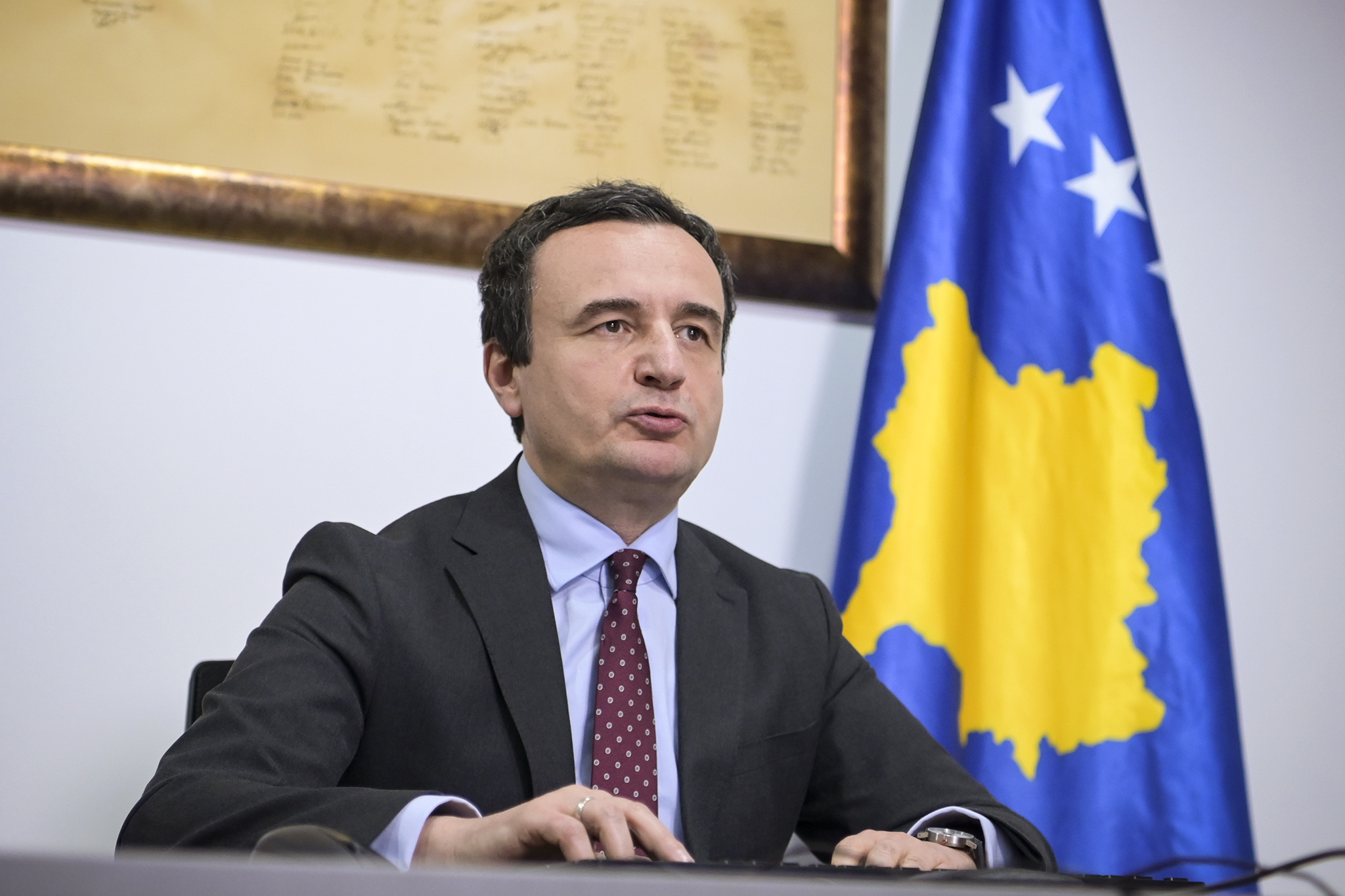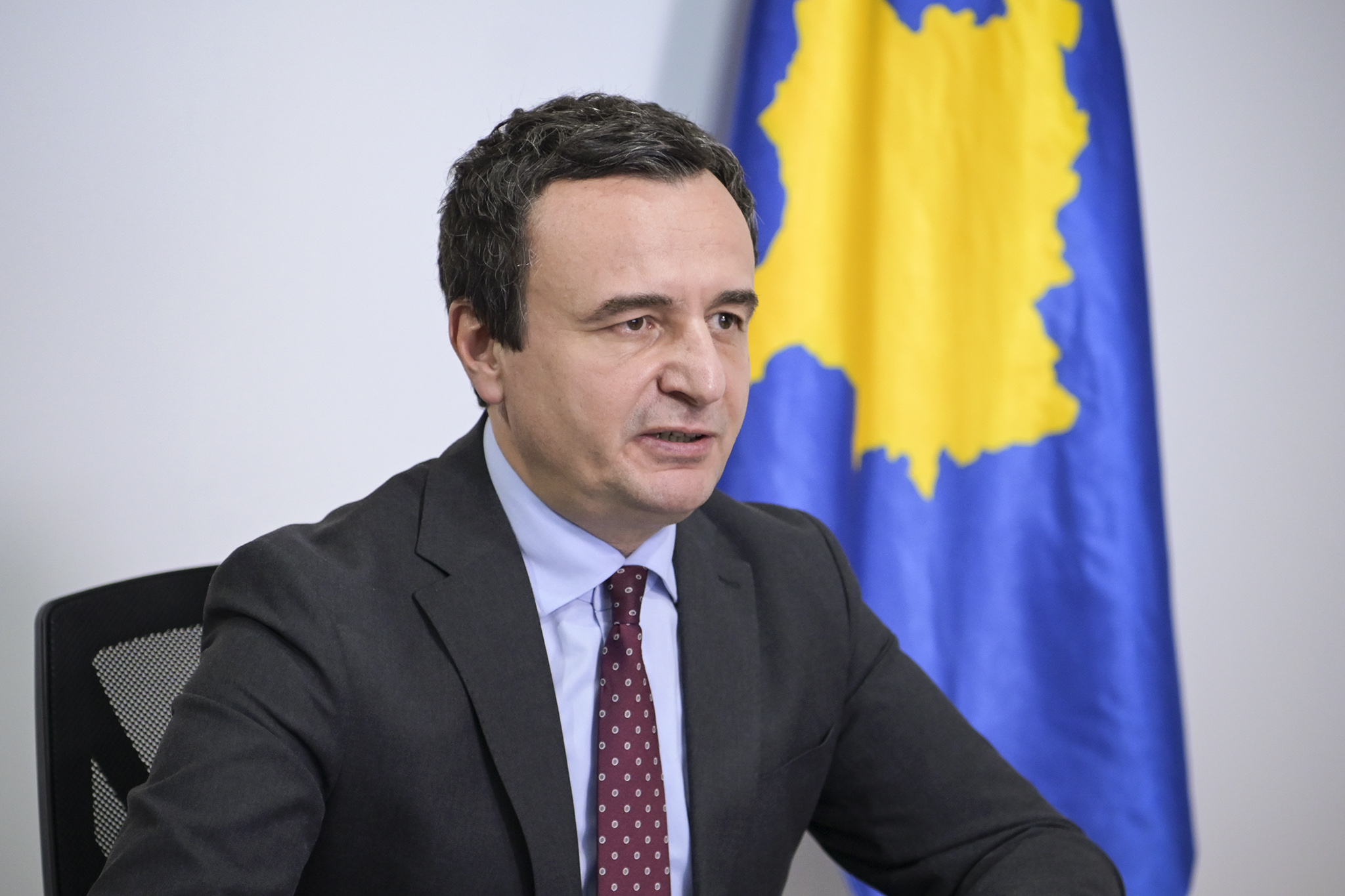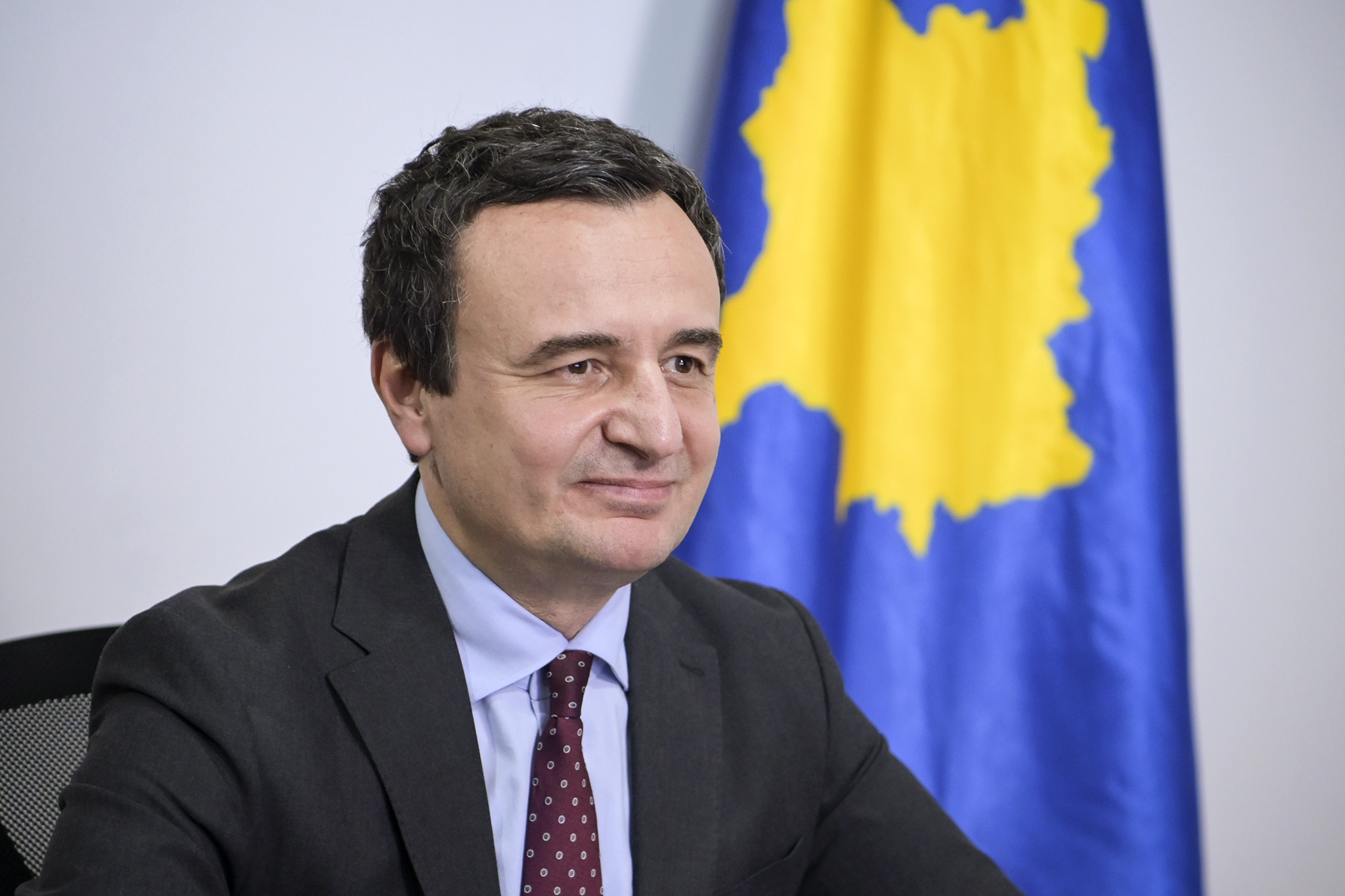17 October 2023
Full speech of the Prime Minister Kurti at Peace Conference: Autocracy vs. Democracy, organized by the Association Tout Pour La Republique, Universite Pantheon Sorbonne, the Hyland Center for Global Studies at UBT, and the Albanian Diaspora Business Network:
Dear Mr. Christopher Hyland, the deputy national political director of President Bill Clinton,
Dear Mr. Oliver Vedrine, French Political Scientist,
Dear Mr Hazis Vardar, President of the Albanian business network in France,
Dear Mr. Joseph Michael Viere, President of the Association Tout Pour La Republique,
Ladies and gentlemen,
Dear friends,
Let me start by saluting the organizers, L’Association Tout Pour La Republique, Universite Pantheon Sorbonne, the Hyland Center for Global Studies at UBT, and the Albanian Diaspora Business Network for putting up a conference like this, on such a timely topic. It is indeed a great pleasure and honor to be with you all today (even if only virtually). I am especially grateful for the chance to listen and respond to the remarks of a friend and international affairs expert such as Christopher Hyland. His counsel, based on a long political experience and a keen sense of practical judgment, is one we’d better pay attention to.
Christopher Hyland’s remarks made me think about the world-historical significance that the defense of liberal-democratic Constitutions assumes in our own days. Geopolitically speaking, the world is at an inflection point. The distribution of power in the international system is shifting as a result of China’s rise and Russia’s vengeful comeback. Against the backdrop of such developments, a worrisome democratic backsliding is taking place throughout the world, including parts of the Western world. Civic identities are being sidelined as tribal and ethnic ones take precedence. For example, in our days we may hear Hungary’s PM Viktor Orban speak out against the “mixing of races” and proudly call Hungarians a “pure race,” we may learn that Russia has dubbed its joint military air defense exercises with Serbia “the Slavic shield”, and we may witness how Narendra Modi’s India, the world’s most populous democracy, risks moving toward some sort of Hindu ethnocracy. The insistent demand of Serbia’s autocratic leadership for an association of Serb-majority municipalities in Kosova may not be properly appreciated without this global context, even though the origins of the project go much deeper than this.
Aleksandar Vucic, a disciple of Vojislav Sesel and Slobodan Milosevic’s minister of information (meaning propaganda) during the 1990s, seeks to install an ethnocratic juridical-political entity within Kosova, so as to render our republic a dysfunctional state. He does not believe in the idea of liberal-democratic citizenship. That’s why at the same time that he wants the installment and control of such an entity within Kosova, his government is implementing an administrative ethnic cleansing of majority-Albanian municipalities in southern Serbia by deleting local Albanians’ residential addresses from the municipal records.
The Constitution of the Republic of Kosova, as Hyland rightly points out, is not only based on universal liberal-democratic norms, such as respect for human dignity and the equal rights of all citizens before the law, but it is moreover very generous in its conception of the right to self-management of the ethnic minorities, especially the Kosovan Serbs. Kosovan Serbs enjoy an effective veto over many important aspects of law- and policy-making, not just at the level of local government, but at the national level as well. Article 81 of our Constitution, referring to what it calls “legislation of vital interest,” stipulates that a wide range of laws may not be adopted or abrogated without the agreement of the majority of the Assembly deputies holding seats guaranteed for the minorities, which in total amount to 20 seats (per Article 64 of our Constitution). Included here are laws having to do with changing municipal boundaries, laws implementing the rights of communities and their members, laws on the use of language, laws on local elections, laws on the protection of cultural heritage and special protected areas, laws on religious freedom, laws on education, and laws on the use of symbols. Moreover, none of these laws may be submitted to a referendum.
These affirmative action measures make our National Assembly effectively bicameral, though formally it has only one chamber. Furthermore, not only does the Constitution require that our Assembly have 20 seats guaranteed for the minorities, but it also stipulates that the government cabinet shall have at least one Minister from the Kosovan Serb community and one Minister from another Kosovan non-majority community. Thus, in addition to being liberal-democratic, our Constitution, deriving from the Ahtisaari Plan (who passed away yesterday), has also what political scientists call consociational features—that is, arrangements meant to give the Serbian minority the privileged role of an institutional veto player. One would be hard pressed to name another such Constitution in a country with a demographic reality such as ours, where the overwhelming majority of the population (93%) belongs to the largest ethnic group, Albanians.
The Association of Serb-majority Municipalities (so-called Serbian Zajednica) would have been the coup de grâce for our Constitution. It is therefore not a coincidence that our Constitutional Court found 23 articles of its proposed Statute to be in violation of our Constitution.
What we have here is a clear clash between two antithetical visions: the Ahtisaarian vision of a liberal, multicultural and consociational democracy, on the one hand, and the ethno-theocratic vision of the Serbian government that still operates under the concept of the throne-altar alliance, on the other. We cannot have it both ways. If our Constitution is allowed to be upended, as Serbia intends to do through an association of Serb-majority municipalities, that will be the end of an independent and liberal-democratic Republic of Kosova. The stakes could not be higher than this for us as Kosovan citizens and democratic patriots and republican adherers. But there is here something important at stake for our Western allies and partners as well. Kosova is a success story of Western humanitarian intervention. As such, its flourishing as a liberal-democratic state is the greatest vindication there can be of NATO’s just war against Milosevic’s Serbia.
In the global clash between democracy and autocracy that we’re now witnessing, small battles in the periphery might not seem to matter much. However, this is an impression that is not borne out by the historical evidence. History teaches, to the contrary, that failure to take a principled stance against autocrats in a minor theatre of world politics (as some might be inclined to view Western Balkans) may easily precipitate much greater global crises. Modern Balkan history has illustrated this on many occasions, with the most dramatic one being the outbreak of World War I. I believe we democrats should do much more to coordinate across international borders, so as to offer much-needed solidarity to one another as we face the return of the authoritarian far-right, be it in our own countries or in our neighborhoods. While it certainly matters that we have the moral high ground, that is insufficient. What we need is to turn such moral high ground into political high ground. And that requires organized efforts. As the American writer Kurt Vonnegut put it, “There is no reason why good cannot triumph as often as evil. The triumph of anything is a matter of organization.”
Thank you very much.
Merci beaucoup.





